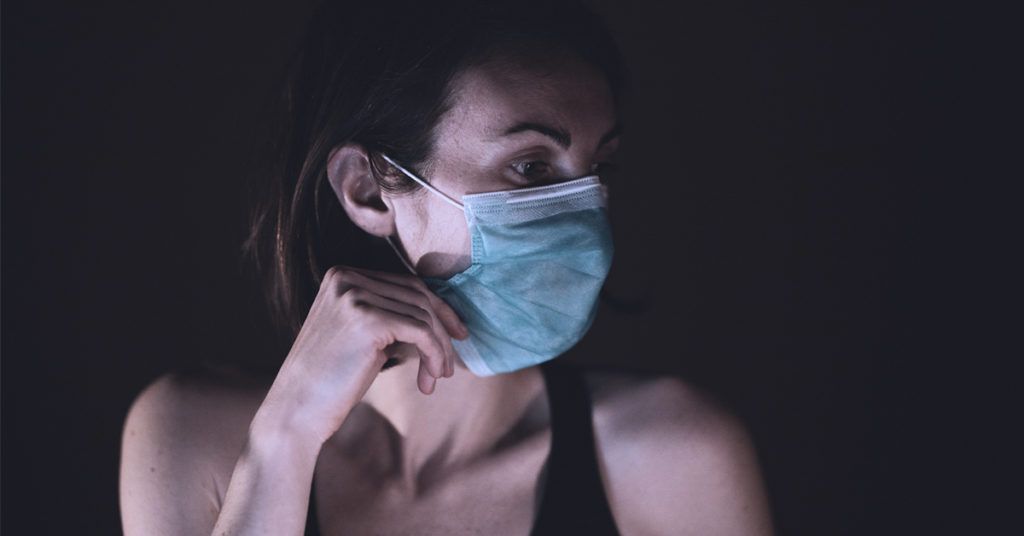Sick from COVID-19 virus? Here is what to Expect

The common fear about COVID-19 is the Delta variant. It has fast transmission but it is less fatal than other variants. How true is this?
The Delta variant recently filled the global news as it posed a more significant threat of being highly transmissible even to those vaccinated. There are no firm studies that say the Delta variant causes more serious illness. However, they show similar symptoms with that of the old viral sequence. Although concerned officials and organizations are actively doing their part to mitigate the dire health situation, some health experts still warn that it may only get worse. The speculation is exceedingly feasible as new variants of COVID-19 continue to emerge that are more infectious.
The Early Stage and Recovery Stage
If you do not have access to antigen test, it is difficult to determine right away if you are carrying the disease. However, assuming that you had contact with a host, here is the possible timeline to observe:
Day 1- 5: No symptoms of COVID-19 yet.
Day 5- onwards: Mild symptoms like muscle pain, fever, chills and sore throat can start to develop. Some can experience a combination or worsening of these four symptoms. Within 2-14 days after contact, you can start to feel tired, breathless, and loss of taste and smell.
While some infected patients recover within two weeks, others experience ongoing health problems even after the specified time. Post-COVID conditions occur within four or more weeks after first contracting the disease. They may feel symptoms like alterations in period cycles, cough, headache, mood changes, sleep problems, stomach pain and tiredness. Isolation, for 14 days of less, is the immediate solution when a person gets infected. Some might only require physical isolation and medicines while others need optimal supportive care. It all depends on the health condition of the person. This is true for those who show severe symptoms of COVID-19 that need ventilators or other oxygen-supporting equipment. After 14 days of isolation, the infected person does not automatically get out of confinement. Another 24 to 72 hours is needed to monitor any fever symptoms after not taking medicines.
The Side Effects of Treatment
During the COVID-19 treatment, a doctor may suggest taking different medications to increase the chances of success.
However, a study showed that some combinations of these medications could lead to severe health conditions. For instance, the use of Heparin (an anticoagulation medicine) and Salbutamol could result in acute cholecystitis, which causes inflammation in the gallbladder. In some cases, it could also lead to making a hole between the walls of two upper chambers of your heart.
The use of steroids is also something to be discussed. Steroids are used for its immune-suppressing abilities. It can treat chronic diseases like asthma and autoimmune disorders. For COVID-19 treatment, the experts warned that using steroids could be a great preventive measure but it comes with a risk. Some potential harms of this medication include muscle weakness, gastrointestinal bleeding, and fungal infections.
As of August 2021, there are already more than 1.7 million cases of coronavirus disease (COVID-19) in the Philippines. The lethal effect varies from person to person. Children may experience multisystem inflammatory syndrome weeks after Delta variant contact. On the hand, the situation for older people becomes worse due to comorbidity on existing diseases.
Conclusion
What remains highly recommended is that every Filipino participate in preventing and mitigating the pandemic situation. The most important step is getting vaccinated. Vaccination provides long-term protection and solution. The other essential things to do are wearing masks, frequent hand-washing and social distancing. Doing these preventive actions can save you and those around you from the dire consequences of the mutating COVID-19 virus. If by any chance, you followed the preventive actions but still contract Delta variant, you can get an online consultation with MyPocketDoctor. The MyPocketDoctor website and mobile app (Android and IOS) now have Multi-factor security to guard your medical information better. This telemedicine service, other than providing you with online medical consultation, has also been actively providing you with valuable health information to guide you during these difficult times. You can certainly enjoy these conveniences right at your fingertips by downloading the MyPocketDoctor app and talking to our team of doctors about your health concerns. The MyPocketDoctor can be contacted through its Facebook page and/or agent chat on the website www.MyPocketDoctor.com. You may check the Frequently Asked Questions (FAQs) through this website.
References:
www.pubmed.ncbi.nlm.nih.gov/33299085/
www.cdc.gov/coronavirus/
www.health.harvard.edu
